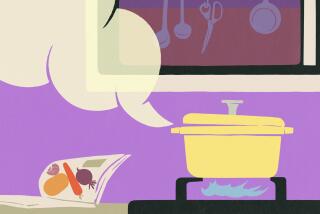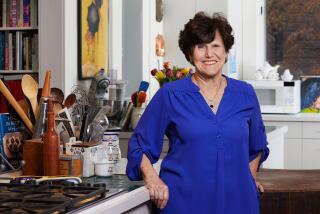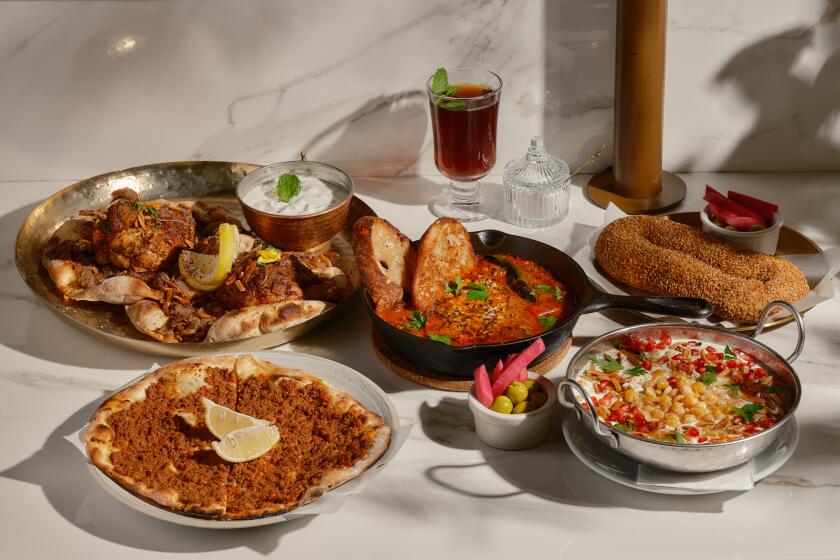Cookbook Watch: ‘101 Classic Cookbooks’
“Best of” lists are a staple of magazines and websites. Leave it to Clark Wolf, one of the canniest food marketers around, to figure a way to turn one into a book. And a fascinating book at that. Teaming with Marvin Taylor and an esteemed cast or advisors, Wolf has produced “101 Classic Cookbooks,” a collection that will inspire much good cooking and probably even more spirited discussion.
(A couple of obligatory disclaimers: My colleague Jonathan Gold was one of the advisors for this book, and I am a member of a committee that does a similar job selecting the Culinary Classics awards for the International Assn. of Culinary Professionals.)
What Wolf and company have done is compile a canon of American cookbookery (and it is a very American list, though spots have been reserved for a few British authors who made it big in the U.S., such as Elizabeth David).
The list proceeds in roughly chronological order, starting with Fanny Merritt Farmer’s 1896 “The Boston Cooking-School Cook Book” and Ella Kellog’s 1897 “Every-day Dishes and Every-day Work” and concluding with Mark Bittman’s 1998 “How to Cook Everything” and Thomas Keller’s 1999 “The French Laundry Cookbook.”
It’s a handsome effort. Each book gets a brief biographical description with its cover and a few sample pages reproduced in color on slick paper (the books photographed are obviously well-loved, with chipped and sometimes stained dust jackets ... a nice touch). There are also a dozen longer essays, mainly prominent advisors writing on their favorite contributors -- Judith Jones on Julia Child, William Grimes on Luchow’s, etc. Finally, there is a selection of 501 recipes from these books arranged soup-to-nuts.
Any amateur user of cookbooks will find much to love in these pages. Sometimes it’s being reminded of a once-favorite now unfortunately forgotten (Genevieve Callahan’s “The California Cook Book for Indoor and Outdoor Eating” or Richard Sax’s “Classic Home Desserts”). Sometimes it’s the pleasure of having one’s own good taste confirmed (Richard Olney’s “Simple French Food,” Carol Field’s “The Italian Baker” or Clementine Paddleford’s “How America Eats”).
There are obvious choices (Saint Julia, Professor Pepin) and there are obscure ones (Rufus Estes’ “Good Things to Eat, According to Rufus” and Robert Delf’s “The Good Food of Szechwan”).
And, of course, there is the unmistakable fun of argument. I’ll grant you that Patricia Wells’ “Bistro Cooking” belongs on the list, but why not her “Simply French”? Though Barbara Tropp’s “The Modern Art of Chinese Cooking” is indeed terrific, why is there nothing by Ken Hom? And if there’s going to be a Roy Andries de Groot book on the list, surely it should be “Auberge of the Flowering Hearth,” not “Feasts for All Seasons”!
But one of the greatest pleasures of the book is the simple reminder that though so many recipe collections these days seem exist for little more reason than to serve as footnotes to television shows, there are the occasional cookbooks that actually do make a lasting contribution. It’s nice to have that honored.
More to Read
Eat your way across L.A.
Get our weekly Tasting Notes newsletter for reviews, news and more.
You may occasionally receive promotional content from the Los Angeles Times.







